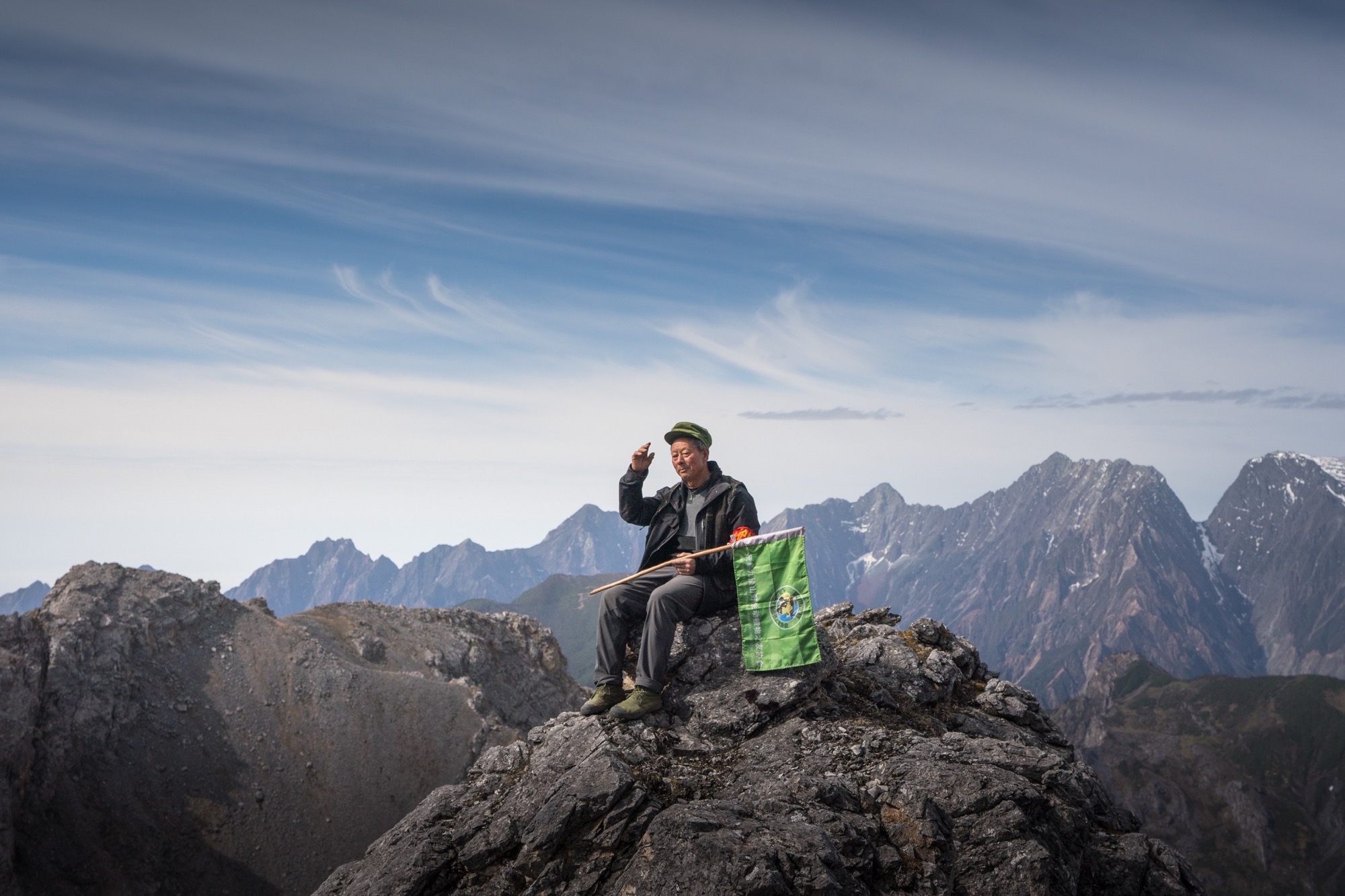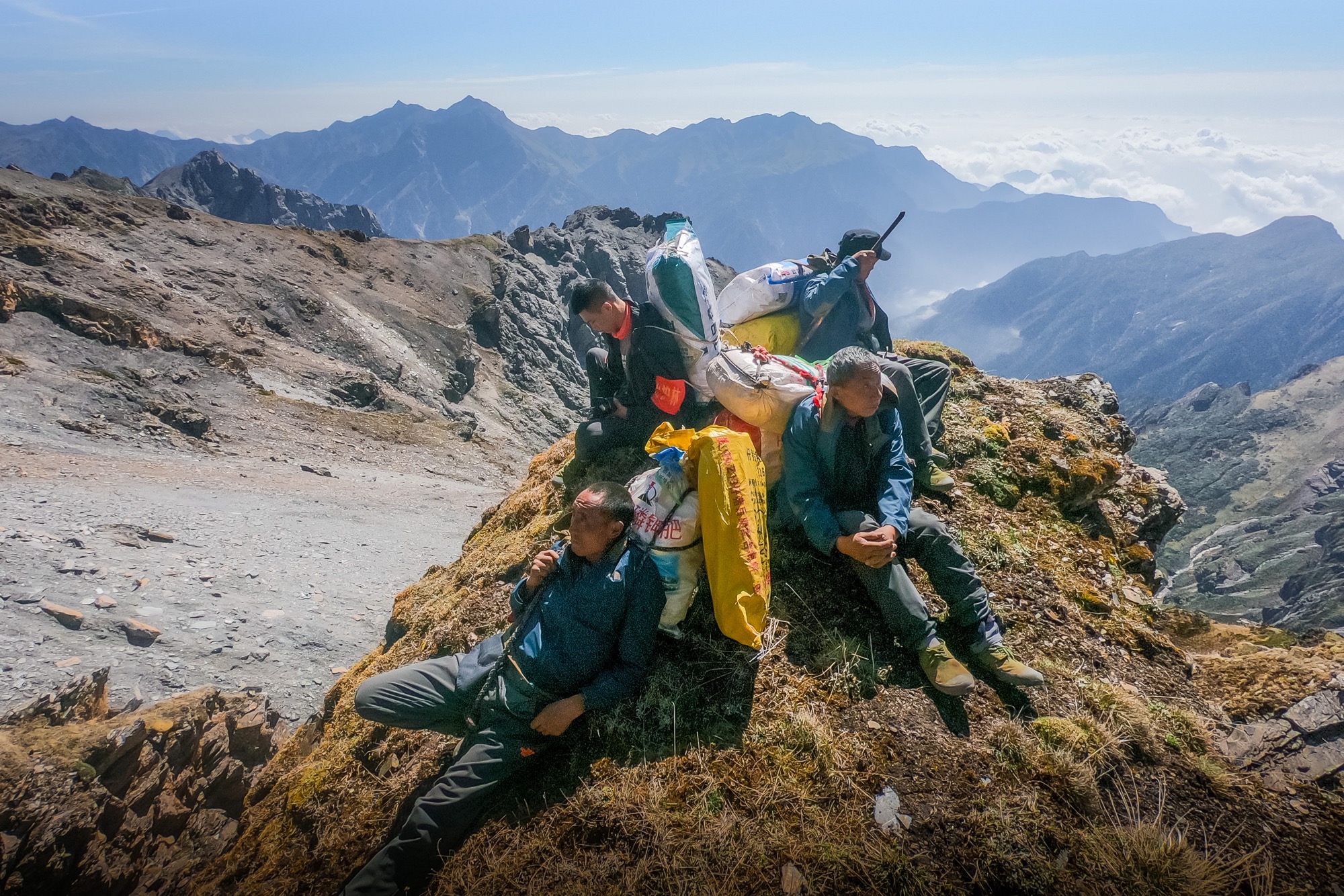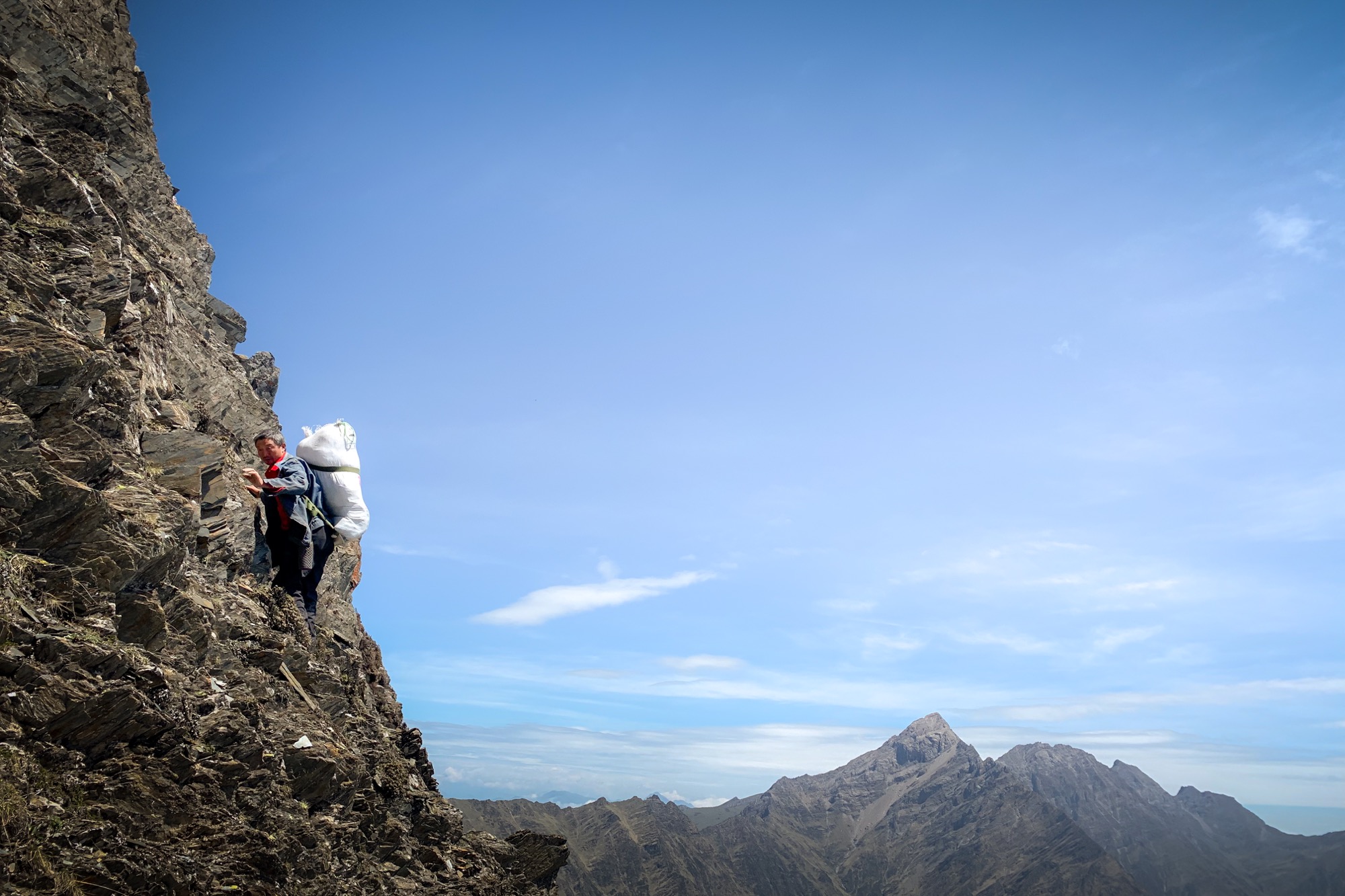Guns versus sticks: One Chinese grandfather’s fight against poachers
Conservation China is a five-part series in which environmental photographer Kyle Obermann brings us through glaciers, remote forests, and dusty villages to the gritty and stunning frontlines of Chinese conservation efforts. This is the final part. (Previously: Part 1, Part 2, Part 3, Part 4.)

This is only one of the many dangers Yu Jiahua has encountered while patrolling Jiuding Mountain since 1995 to prevent poaching. A survivor of the Wenchuan earthquake, encounters with armed poachers, and life-threatening winter conditions near 5,000 meters, Yu is a veteran forest ranger in Sichuan Province. He is also the founder of the Jiuding Mountain Wild Plants and Animals Friendship Society, a group of organized villagers which together have removed more than 130,000 wire traps and 27 illegal rifles used for poaching during monthly patrols. Since their founding in 2004, the society has won awards and acclaim across China for their anti-poaching efforts. Now 70 years old, Yu continues to lead monthly expeditions across Jiuding Mountain with his son, who remains in the village, and grandson, who takes off work and makes the six-hour round-trip every month to attend.
“Look, a bullet casing!” Yu called out to me. I picked my way across the steep scree to where Yu held out his extended hand. In his palm lay a small, faded homemade casing. “It’s probably over a year old.”
“Have you ever encountered poachers with guns on the mountain?” I asked him. “What do you do?”
“Yes, a few times, it’s very dangerous,” Yu replied, his weathered face and sharp eyes giving off a rare twinkle through his usually somber complexion. “When we do, it all depends on how many numbers we have. Are we more or less than them? If our team is less than them, we have no choice but to back down. It’s much too dangerous to confront them. If we have more, then we can confront them and bring them down the mountain to the local forestry police. That’s why it’s so important to have a large team.”
He gestured at the three other rangers with us on the narrow, rocky pass. Our group had split into three different teams that day: one to guard the campsite and two to patrol the lower valleys down the eastern face of Jiuding Mountain. Yu had encountered groups of up to six hunters before. I secretly wondered what would happen this time if we encountered such a large group? Did a skinny American photographer count as plus one or negative one?
A game of numbers. It was shocking to hear that was what conservation had come down to, less than 100 kilometers away from the congested streets of Chengdu, the world-famous home of pandas. There used to be pandas here, too, Yu said, but that was long ago in the days before poachers from farther villages came to the mountain in the 1980s. Now, even though guns have been banned in China since 1996, it is still hard to recruit the numbers and funds to enforce China’s 1988 law which bans illegal hunting in wild areas like Jiuding Mountain, especially when one side is armed with guns and the other with sticks — only those used for hiking at that.
After resting a short while on the pass, we continued downward toward the next valley. I had two close encounters with serious injury in the following hours. One unstable hold broke off on a particularly rocky route, nearly throwing me hundreds of meters below. Later, when we were examining the traces left behind by poachers in a cave, a rock came hurtling down from the ceiling above, landing less than a meter from my head. That night, when I retired in my tent and two other rangers went to go sleep under a makeshift shelter under a rock overhang using branches and an old tarp, my head spun, wondering what tomorrow would bring. It was only day three, there were still four more to go — a short patrol by Yu Jiahua’s standards.



Conservation China is a five-part series. Previously:
China’s attempt to create the world’s largest national park system







